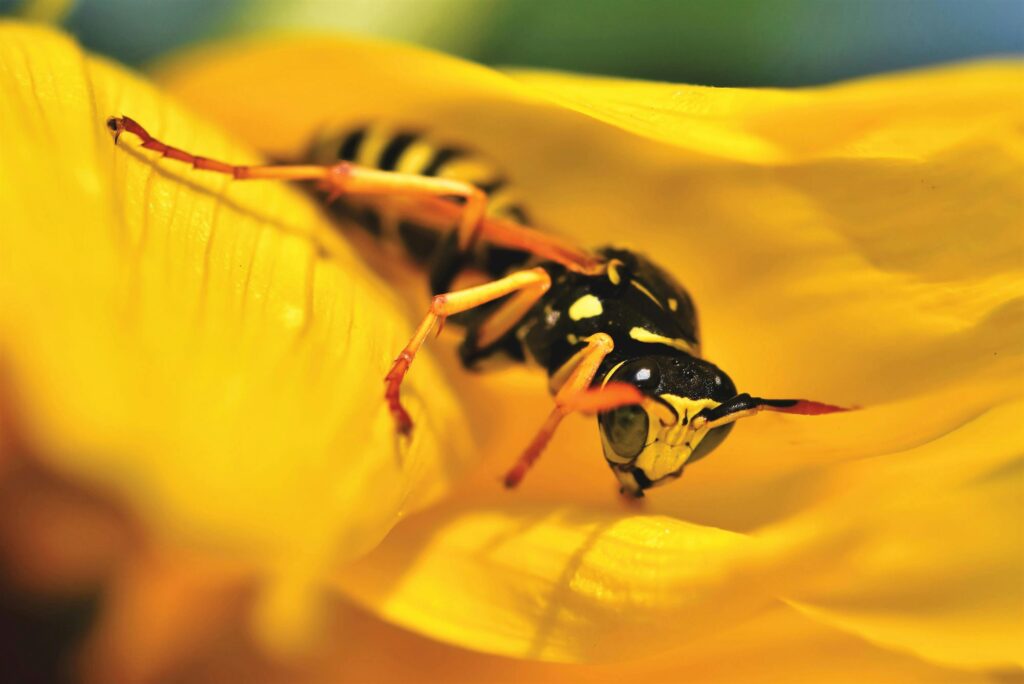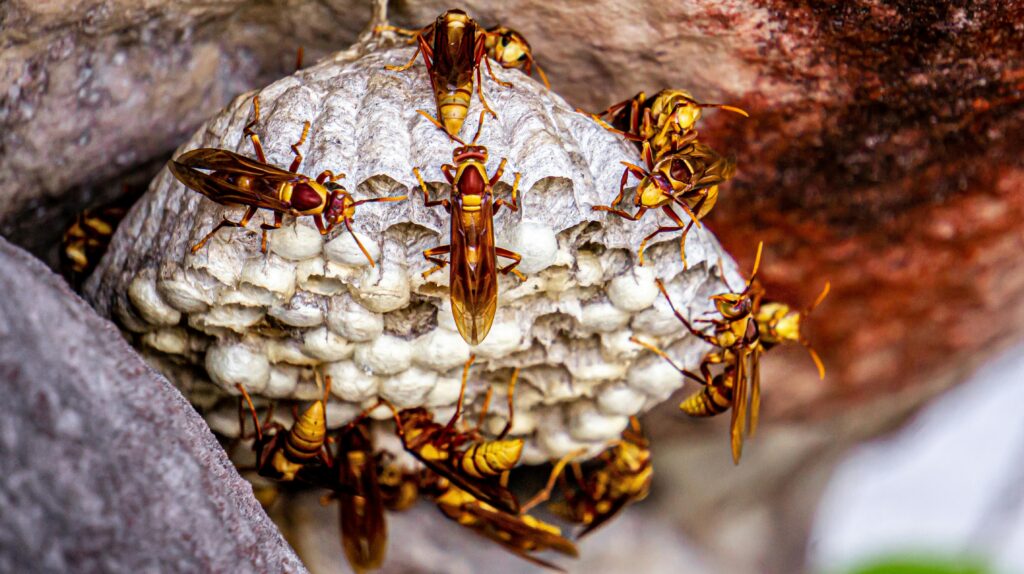Posted January 23, 2024 by Sarah Malone
Category: Advice
Living in Australia means sharing our beautiful landscapes with diverse wildlife, including wasps. Though they play a helpful role in the ecosystem, wasps can become aggressive when threatened, making them unwelcome neighbours. This guide will help you safely manage wasp encounters and prevent their nests from becoming a problem.
Early Detection is Key:
- High wasp activity: A sudden increase in wasps buzzing around a specific area often indicates a nearby nest.
- Nest spotting: Look for honeycomb-shaped structures in sheltered spots like eaves, ceilings, or under branches.
- Protective behaviour: Wasps become hostile when their nest feels threatened.
- Constant buzzing: A loud, persistent buzzing sound can point to a large, active nest.
- Regular wasp sightings: Seeing wasps repeatedly in the same area or disappearing into a specific spot could signify a nest.
Regular inspections around your home and garden are crucial, but be cautious! Avoid getting too close to potential nests to prevent stings.

The Stinging Truth:
Wasp nests pose a significant risk, especially for those allergic to stings. Feeling threatened, wasps may attack, causing pain and potentially life-threatening reactions. Their aggression towards children, pets, and allergy sufferers makes nest removal vital.
Safe Wasp Nest Removal:
Planning is key! Before approaching a nest, ensure you have the necessary safety equipment and a clear plan. If DIY removal is your choice, follow these steps:
- Gear up: Thick gloves, protective clothing, and a face mask are essential.
- Time it right: Early mornings or nighttime are when nests are least active, minimizing aggression.
- Choose the right weapon: Opt for a long-range wasp insecticide.
- Keep your distance: Stay within the insecticide’s effective range but far from the nest.
- Plan your escape: Ensure clear pathways for a quick exit in case of swarming.
- Read the label: Follow all instructions on the insecticide label for safe and effective treatment.

When to Call the Pros:
Seek professional help if:
- The nest is large or in a difficult-to-reach location.
- Someone near the nest is allergic to stings.
- You’re uncomfortable tackling the removal yourself.
Preventing Future Nests:
- Keep your yard tidy and well-maintained.
- Regularly check for early signs of nest formation.
- Some scents, like eucalyptus and lemongrass, can repel wasps.
Remember, respect these buzzing neighbours from a distance. With awareness and proper action, you can coexist peacefully with wasps without facing their wrath.
For further information or professional assistance, contact our office and speak to our knowledgeable technicians.





